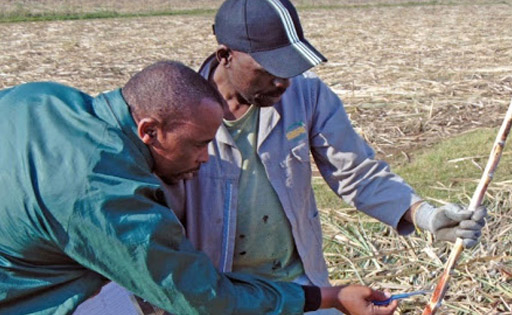Varieties
BREEDING SUPERIOR VARIETIES
Since replanting is an expensive exercise that must generate returns over the following decade, it is important to choose varieties wisely.
SASRI produces high-yielding, pest, and disease-resistant sugarcane varieties to suit a wide range of bioclimatic conditions and cutting cycles. These varieties are pivotal for successful sugarcane enterprises within South Africa, and throughout Africa.
Our breeding programme owes its success to well-qualified experienced research and support staff, working in modern, well-equipped facilities and research farms.
INFORMATION SHEETS
Books
SASRI produces an information sheet for every variety released to the industry. These sheets contain comprehensive information about yield, quality, reaction to pests and diseases and a range of other agronomic characteristics. There are also pictures and details of appearance to assist with the identification of each variety.
Seedcane Production
This manual outlines the procedures for the production of good quality seedcane. Seedcane is defined as any sugarcane plant material which is intended for use in the propagation of sugarcane. Planting good quality seedcane is crucial for profitable sugarcane production. The potential yield of a crop will not be attained if seedcane of poor quality is planted. In spite of this, seedcane production is an aspect of sugarcane management that is often neglected.
Plant Breeding Crossing & Selection Programmes
Each year SASRI plant breeders select parent varieties that will be planted in the glasshouse and photoperiod house to obtain flowers for crossing. The main goal of this programme is to select varieties suited to the major agroclimatic regions of the sugar industry.
Sugarcane quarantine in South Africa
Sugarcane clones from foreign countries are imported into South Africa to broaden the genetic base of the parental breeding stock. Imported varieties are also evaluated as potential commercial varieties. The movement of sugarcane between countries carries a risk of introducing potentially serious diseases and therefore requires stringent quarantine procedures.
Illustrative Guides
DECISION SUPPORT TOOLS
SASRI Variety Guide
This interactive web-based decision support tool uses SASRI trial data to recommend varieties based on region, soil potential and preferred cutting cycle. The visually appealing and user-friendly Variety Guide enables growers and Extension Specialists to extract selected information on specific varieties quickly and in a format that allows varieties to be compared easily.
A word of caution is necessary: while the guide provides valuable information for variety choice, the suitability of the recommended varieties for your specific area and conditions must be confirmed with your Extension Specialist.
VARIETY TRIAL SUMMARIES
SASRI has been conducting Variety Evaluation Trials for decades. These trials are conducted over multiple ratoons and aim to evaluate the agronomic performance of newer varieties across a range of agro-climatic conditions, against existing regional varieties under commercial growing conditions. Outcomes of Variety Evaluation Trials include yield and RV performance, ratoonability and adaptability.
GOVERNMENT GAZETTE
In terms of the Sugar Act, the South African Sugar Association publishes an annual update to the Government Gazette detailing which varieties of sugarcane may be grown in each of the predefined control areas within the industry.
Services
Varieties For Africa
Many SADC and other African countries have formal agreements with SASRI to utilise our varieties. Depending on the country and the estate in question, SA varieties constitute anything from 50 to 100% of the varieties grown.

Quarantine Service
Under licence from the government department responsible for plant quarantine, SASRI operates a world-class quarantine facility used for importing and exporting seedcane material used in local and international sugarcane breeding programmes.
RESEARCH
SASRI conducts research and implements strategies for the continual release of high yielding, adaptable, pest and disease resistant varieties that add value and enhance industry productivity. Visit our VARIETY IMPROVEMENT webpage for more information.
VIDEOS
Importance of approved seedcane (isiZulu)
Subscribe to our News Alerts to receive our latest information.



